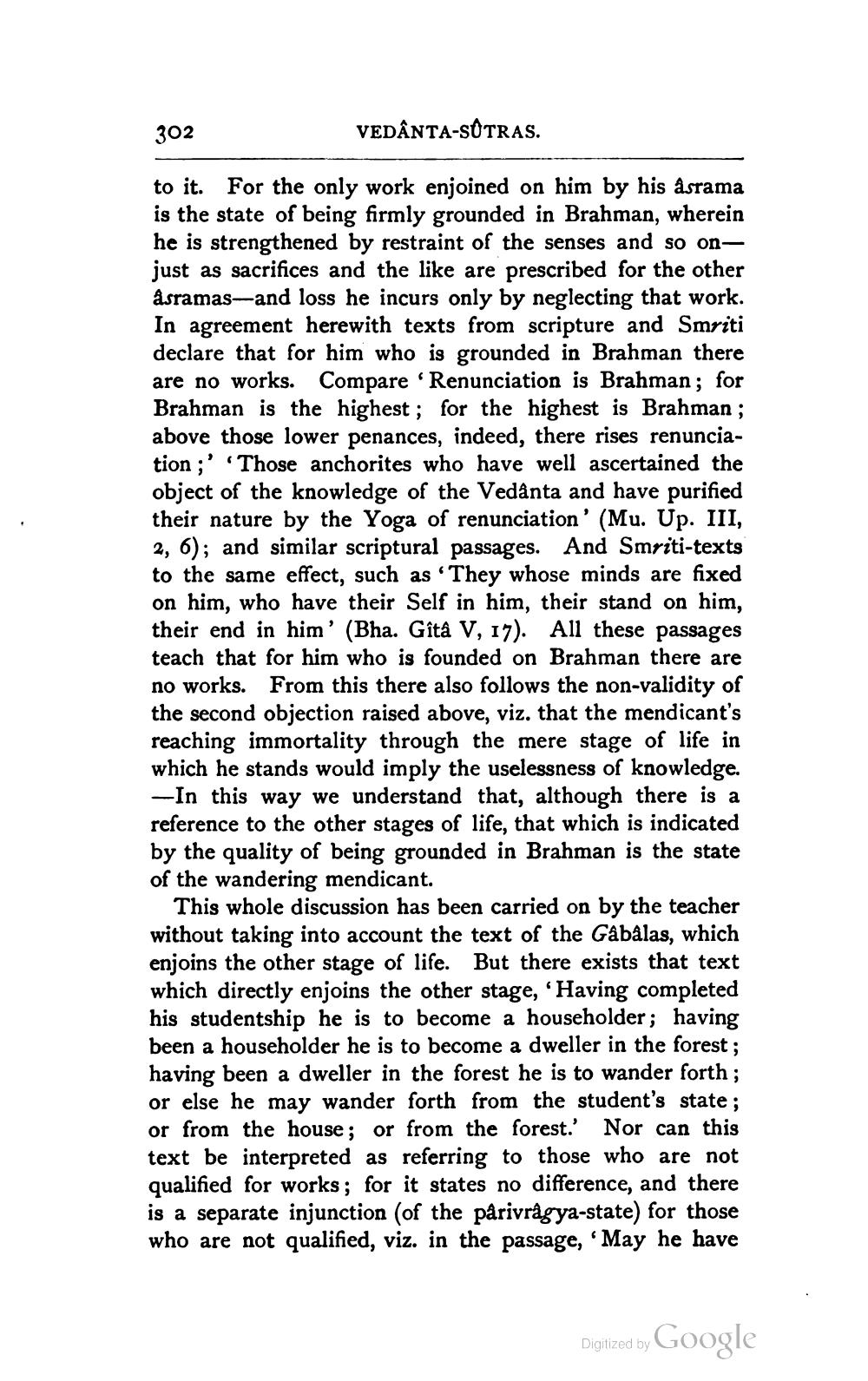________________
302
VEDÂNTA-SOTRAS.
to it. For the only work enjoined on him by his asrama is the state of being firmly grounded in Brahman, wherein he is strengthened by restraint of the senses and so onjust as sacrifices and the like are prescribed for the other asramas--and loss he incurs only by neglecting that work. In agreement herewith texts from scripture and Smriti declare that for him who is grounded in Brahman there are no works. Compare 'Renunciation is Brahman; for Brahman is the highest ; for the highest is Brahman; above those lower penances, indeed, there rises renunciation;' Those anchorites who have well ascertained the object of the knowledge of the Vedanta and have purified their nature by the Yoga of renunciation' (Mu. Up. III, 2, 6); and similar scriptural passages. And Smriti-texts to the same effect, such as 'They whose minds are fixed on him, who have their Self in him, their stand on him, their end in him' (Bha. Gîta V, 17). All these passages teach that for him who is founded on Brahman there are no works. From this there also follows the non-validity of the second objection raised above, viz. that the mendicant's reaching immortality through the mere stage of life in which he stands would imply the uselessness of knowledge.
-In this way we understand that, although there is a reference to the other stages of life, that which is indicated by the quality of being grounded in Brahman is the state of the wandering mendicant.
This whole discussion has been carried on by the teacher without taking into account the text of the Gabalas, which enjoins the other stage of life. But there exists that text which directly enjoins the other stage, 'Having completed his studentship he is to become a householder; having been a householder he is to become a dweller in the forest; having been a dweller in the forest he is to wander forth; or else he may wander forth from the student's state; or from the house; or from the forest.' Nor can this text be interpreted as referring to those who are not qualified for works; for it states no difference, and there is a separate injunction (of the pärivrågya-state) for those who are not qualified, viz. in the passage, 'May he have
Digitized by
Digilzed by Google




